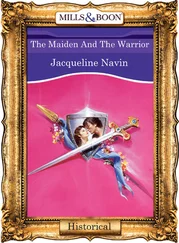“Why can’t who stay home?” wondered Popi.
“Viliki. Why can’t he stay home?”
“They haven’t got what they were fighting for yet, Niki,” said Popi.
“Free Mandela. Free Mandela, they said. Now Mandela is free. And those others. The ones they released first. Mbeki and Sisulu and Gwala and others. Their names are on the radio every day. But why is Viliki never home?”
“He did explain, Niki, that now there is even more work to be done. The Boers are still the rulers. Even though his Movement has been unbanned, here in Excelsior we still only enter the hotel as cleaners. At the post office there are still two queues — one for whites and the other for blacks.”
“Why would you go to the post office, anyway?” asked Niki. “We never receive letters. We never post letters to anyone.”
Then she looked at Popi, and fear suddenly gripped her. “You are becoming a politician like your brother,” she said admonishingly.
“These are just the truths that we see, Niki,” said Popi.
“I fear for my children,” said Niki resignedly.
“They have released the leaders and the exiles have come home,” cried Popi. “Yet the police still harass Viliki. They just can’t leave him alone.”
Niki would not have admitted it, but Viliki’s gallivanting had had a positive effect on the family. After one of his forages into the hinterland on Movement business one year, he had brought back a radio. A big ghetto blaster, as Viliki called it, which also played cassette tapes in two places. Hence Niki could now sing the names of Walter Sisulu and Govan Mbeki and Harry Gwala. Even though these names were popular outside the confines of her shack, for we talked about them everywhere we gathered, Niki was never part of such gatherings. If it were not for the magic of the ghetto blaster, Niki would have remained blissfully ignorant of these names. And of the radio drama series to which she had become addicted. Pale-e-Tswelang-Pele. The story that continues. The Sesotho service of Radio Bantu of the South African Broadcasting Corporation. Dramatic stories of heroes who fought against ungodly terrorists in the bush. Stories that extolled the virtues of those who chose to stay in the rural homelands, rather than go to the cities to make a nuisance of themselves there.
She would have been saved from another addiction: weekly obituary programmes. Every Friday, the announcer read in a soothing voice the names of the departed, the cause of their demise, where and when the funeral would be held, the particular people to whom the message was directed, and the names of those who had sent the message to the radio station. If she were to depart, Niki felt she would be assured permanent residence in Heaven if this particular radio announcer read her name.
Popi looked at the postcard intently. The figures seemed to assume life in the haziness of the smoke. A teardrop fell on the baby Jesus. She cleaned it off with her thumb. She sneezed as the smoke assailed her nostrils. She rubbed her neck with her forefinger. The skin was peeling off. Scales of dead skin on her neck and on part of her chest. These had been peeling off for as long as she could remember. She did not know why. It was an allergy, a doctor once said. An allergy. But Niki knew that the peeling had begun when she had roasted Popi as a baby. When she had wanted to brown her, only for her to turn into a truly coloured baby. The peeling spot on Popi’s neck and chest should have stayed small as the child grew bigger. But it had grown with her. And had got bigger with her.
The peeling spot had long become a taboo subject between Niki and Popi. So were Popi’s experiences in the world outside the safety of her shack. She kept her daily flagellation of taunts to herself. Taunts. Taunts. Taunts. Even though on one hand we praised her for being beautiful, and for having a wonderful voice, we continued to laugh at her for being a boesman. As we laughed at other men and women, and boys and girls, who looked like her, and were brave enough to walk the streets of Excelsior. We laughed. Until she lost hope that we would ever accept her. Until she was filled with thoughts of revenge. No one told her that vengeance had a habit of bouncing against the wall, like a ricocheting bullet, and hitting the originator. Look what had happened to Niki when she filled her loins with vengeance! It was because of that vengeance that Popi was now a prisoner of the perpetual doek on her head, of blue eyes and of hairy legs.
“One day you must send them to someone,” said Niki.
“Send what to someone, Niki?” asked Popi.
“That’s what they were meant for, to be posted to someone.”
“Oh, the postcards? Never!”
THE SINS OF our mothers were never mentioned at dinner tables. An elaborately laid table, with a vase of red and yellow plastic roses in the middle, would have been at odds with idle talk of the misdemeanours of the flesh. Even though the Reverend François Bornman’s empty eye-socket was a constant reminder that they had once been committed. They had once been written in the Big Book where all sins are recorded, although all have since been expunged. Thanks to a forgiving God.
The socket was empty because Jacomina’s naughty poodle had swallowed the dominee’s marble eye, which he had taken out of its socket for cleaning. After Jacomina had cleaned the eye with Det-tol antiseptic in warm water, she had left it in a saucer on the side table next to her bed to dry. When she came back from another room, she had found the stupid poodle playing with it, rolling it on the carpet with its paws, and then catching it with its teeth. She had shouted at the poodle. It had been so startled that it had swallowed the eye inadvertently, as Jacomina had vouched to her father when she reported the incident.
Now the dominee’s face looked like that of a naughty old man who had been caught winking at someone’s wife by cruel gods — who had then decided to play a prank on him by making the eye refuse to open again. A brownish jelly oozed out of it and made Cornelia Cronje’s own eyes weep.
She tried to avoid looking at the dominee. But he was sitting directly opposite her. And was chewing away at the hoenderpastei — the Cape-Dutch chicken pie — oblivious to her discomfort. It was particularly tasty, thanks to the free-range chickens that patiently awaited the occasional guillotine in the dominee’s backyard. And thanks to the cooking skills of Jacomina. Everything that Jacomina touched turned into a culinary wonder that sang in one’s mouth. That was why the guests had not stopped praising the crunchiness of her maize-meal spinach patties and the delicate tanginess of her tomato bredie that had been simmered in a cast-iron potjie over the coals. Or singing paeans to the colourful roasted vegetables that surrounded the brown rack of lamb. Green peppers, red peppers, green courgettes, deep red beetroot, green and white leeks, deep brown mushrooms and light yellow pattypans. And to the saffron samp cooked with sugar beans.
The cherry pudding served with custard was a sensation.
“You must give me the recipe, Mina,” said Cornelia to Jacomina.
“It’s very simple,” said Jacomina rejoicing in her expertise. “Just make a good dough with butter, sugar, milk, eggs, flour and baking powder. Then cover the cherries with the dough and bake. Simple.”
“Easier said than done,” said Lizette de Vries. “My cherry pudding always turns into a mess. Even the simplest cherry crumble turns to mud in my hands.”
“The secret of a good cherry crumble is: use very little sugar. Depend mostly on the sweetness of the cherries themselves.”
“She takes after her mother,” said the dominee proudly. “She was the greatest cook this side of the Vaal. This side of the Limpopo even. She was something else, that woman of mine.”
Читать дальше












